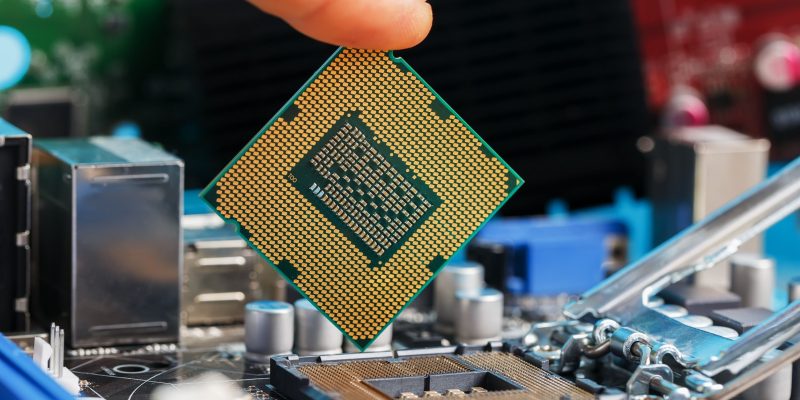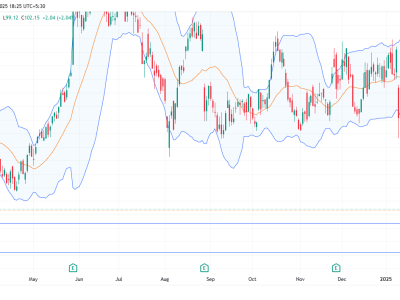
Intel Corporation’s decision to delay its semiconductor plant in Germany has dealt a significant blow to the European Union’s efforts to ramp up chip production.
This delay in the Magdeburg project, which is now pushed back by approximately two years, could rekindle debates in Berlin over the allocation of the €10 billion ($11 billion) in subsidies intended for the semiconductor sector.
Originally, the Magdeburg facility was set to be the largest initiative under the EU’s Chips Act, a pivotal part of Europe’s ambition to produce 20% of the world’s semiconductors by 2030.
The delay not only complicates those goals but also undercuts the broader EU strategy for boosting local chip manufacturing capacity.
German Chancellor Olaf Scholz, while speaking during a visit to Kazakhstan, confirmed that the government would continue to prioritize the semiconductor industry. Scholz said:
The earmarked funds for our semiconductor projects remain essential, and we intend to continue promoting this sector in Germany.
Intel faces tough choices
Intel, meanwhile, faces significant headwinds globally.
Alongside the delay in Germany, the chipmaker also postponed a planned factory in Poland, as the company grapples with declining sales and mounting losses.
Last month, Intel announced plans to cut 15,000 jobs, slash costs by $10 billion, and suspend dividend payments.
These measures highlight the company’s effort to regain its footing in an industry where it has lost ground to competitors.
Once a leader in the sector, Intel’s valuation has fallen below $90 billion, and its shares have dropped 58% this year alone, the report further added.
The global semiconductor industry has become increasingly critical, as governments strive to localize production of these essential components.
Chips are used in everything from cutting-edge artificial intelligence to everyday consumer electronics, and disruptions during the Covid-19 pandemic, coupled with growing tensions between the US and China over Taiwan, have brought the industry’s vulnerabilities into sharp focus.
Germany’s budget crisis meets Intel setback
However, Intel’s decision to pause the Magdeburg project may offer some financial relief for Germany, as no state money had been deployed yet, and the project was still in the final stages of securing EU approval.
This delay could open up funds at a time when the country is facing a significant financing gap—at least €12 billion—in its 2025 draft budget.
Finance Minister Christian Lindner emphasized that any funds initially intended for Intel should now be allocated to reduce fiscal shortfalls.
“Funds that are not needed for Intel must be reserved for resolving outstanding financial issues. Anything else would be irresponsible,” Lindner said via X.
The semiconductor subsidies are managed through a special fund for climate and transformation projects, under the jurisdiction of Economy Minister Robert Habeck.
Unlike Lindner, who is firm on maintaining borrowing limits, Habeck has been an advocate for suspending these limits to finance vital investments in areas such as technology and infrastructure.
Habeck reiterated that Intel’s decision was a purely business-related move and reaffirmed Germany’s commitment to fostering semiconductor production in Europe.
Intel’s delay is the latest in a string of concerning developments for the German economy.
Earlier this month, Volkswagen AG made headlines by announcing plans to end long-standing labor agreements and hinted at possible factory closures due to declining demand.
Similarly, BMW AG reduced its full-year profit forecast and is facing a large-scale recall related to faulty brake systems supplied by Continental AG.
Investor sentiment toward Germany’s economy has also soured. The ZEW Institute’s economic expectations index saw a steep decline, falling from 19.2 in August to just 3.6 in September—its lowest level in nearly a year.
“The optimism for a swift recovery in the economic situation is clearly waning,” said Achim Wambach, president of the ZEW Institute in a statement.
While expectations for the eurozone have also fallen, the drop in confidence for Germany is especially pronounced.
Can the EU reach 20% global semiconductor market share?
Despite Intel’s delay, other semiconductor projects in Germany are moving forward.
Taiwan Semiconductor Manufacturing Co. (TSMC) recently broke ground on its first European plant in eastern Germany, a €10 billion project that will receive significant public funding.
However, industry experts caution that Intel’s delay leaves a significant gap in Europe’s semiconductor strategy.
“Without Intel in Magdeburg, Europe is missing its flagship project,” said Frank Bösenberg, managing director of Silicon Saxony, an industry group.
“Achieving a 20% global market share and gaining technological sovereignty in producing chips below 10 nanometers by 2030 seems increasingly unrealistic,” added Bösenberg, as quoted by Bloomberg.
Intel’s delay poses substantial challenges to both the company and the European Union’s semiconductor ambitions, while raising broader questions about Germany’s economic outlook and future investment strategies in critical sectors.
With TSMC pressing forward, the EU still has potential, but the road to its 2030 goals is now far more uncertain.
The post Intel factory delay hinders EU chip ambitions amid Germany’s economic uncertainty appeared first on Invezz









